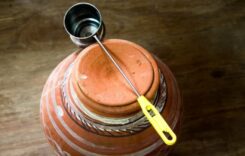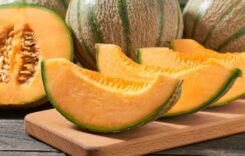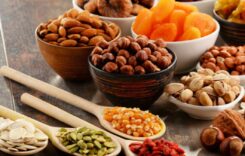Hall of Fame second baseman Joe Morgan, a key individual from the Cincinnati Reds’ acclaimed Big Red Machine, died Sunday. He was 77.
Morgan passed on Sunday at his home in Danville, California, family representative James Davis said in an announcement Monday.
Morgan battled with different medical problems as of late, including a nerve condition, a type of polyneuropathy.
Morgan was a double cross National League Most Valuable Player, a 10-time All-Star and a five-time Gold Glove Award champ. He is generally viewed as a standout amongst other second basemen in baseball history, and he picked up eminence for his 25 or more years as a telecaster after his playing vocation.
“Major League Baseball is deeply saddened by the death of Joe Morgan, one of the best five-tool players our game has ever known and a symbol of all-around excellence,” MLB commissioner Rob Manfred said in a statement. “Joe often reminded baseball fans that the player smallest in stature on the field could be the most impactful.”
Morgan spent most of his 22-year vocation with the Reds and the Houston Astros establishment. Alongside Pete Rose and individual Hall of Famers Johnny Bench and Tony Perez, Morgan helped the Reds win consecutive World Series titles in 1975 and 1976. Cincinnati additionally arrived at the World Series in 1972, Morgan’s first year with the Reds.
“Joe Morgan was quite simply the best baseball player I played against or saw,” Bench texted to The Associated Press.
Morgan was the NL MVP in 1975 and 1976 and was named an All-Star in every one of his eight seasons with the Reds. He was a .271 vocation hitter, with 268 grand slams, 1,133 RBIs, 1,650 runs scored and 689 taken bases, eleventh in baseball history.
There were snapshots of quietness held at Petco Park in San Diego before the Tampa Bay Rays and Astros played Monday in Game 2 of the American League Championship Series and at Globe Life Field in Arlington, Texas, before the Los Angeles Dodgers and Atlanta Braves met in the NL Championship Series opener.
“He meant a lot to us, a lot to me, a lot to baseball, a lot to African Americans around the country. A lot to players that were considered undersized,” said Astros manager Dusty Baker, a longtime friend and National League rival. “He was one of the first examples of speed and power for a guy they said was too small to play.”
Morgan originally played in the majors in 1963, when the Astros were the Houston Colt .45s. He was exchanged to Cincinnati in November 1971 as a component of an eight-player bargain. He played the following eight years with the Reds.
“The Reds family is heartbroken. Joe was a giant in the game and was adored by the fans in this city,” CEO Bob Castellini said in a statement. “He had a lifelong loyalty and dedication to this organization that extended to our current team and front office staff. As a cornerstone on one of the greatest teams in baseball history, his contributions to this franchise will live forever. Our hearts ache for his Big Red Machine teammates.”
Morgan went through the 1980 season with Houston, helping the Astros to a NL West title. He played two years with San Francisco – hitting a grand slam on the last day of the 1982 season against the opponent Dodgers to take the guarding champions out of the end of the season games – and later was brought together with Rose and Perez in Philadelphia.
Morgan hit two homers in the 1983 World Series, in which the Phillies lost in five games to Baltimore, and he significantly increased in his last at-bat.
Morgan completed as a vocation .182 hitter in 50 postseason games. He played in 11 arrangement and batted more than .273 in only one of them, a detail that shocks many, thinking about his major event notoriety.
Brought up in Oakland, California, Morgan got back to the Bay Area and played the 1984 season for the Athletics before resigning at 41 years old. He set the NL precedent for games played at a respectable halfway point and positioned among the profession chiefs in strolls.
He was drafted into the National Baseball Hall of Fame in 1990. The Reds enlisted him into their lobby of popularity and resigned his number (8).
“He did it all, and he did it all the time,” said Bench, the first member of the Big Red Machine to enter the Hall. “Great father and outstanding businessman. He was a friend to so many and respected by all.”
Morgan began his telecom profession in 1985 and worked at ESPN from 1990 to 2010, filling in as an individual from the organization’s lead baseball broadcast group. Morgan headed out in different directions with ESPN after the 2010 season, when he got back to the Reds in the function of uncommon counsel to baseball tasks.
He additionally was board bad habit director of baseball’s Hall of Fame and on the leading group of the Baseball Assistance Team.
“Joe was a close friend and an advisor to me, and I welcomed his perspective on numerous issues in recent years,” Manfred said. “He was a true gentleman who cared about our game and the values for which it stands.”
Morgan is made due by his significant other of 30 years, Theresa; their twin girls, Kelly and Ashley; and girls Lisa and Angela from his union with Gloria Morgan. Memorial service subtleties were not yet set.
Morgan is among a few Hall of Famers who have passed on this year, including Whitey Ford, Bob Gibson, Lou Brock, Tom Seaver and Al Kaline.
“All champions. This hurts the most,” Bench said.










